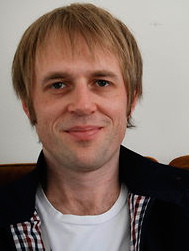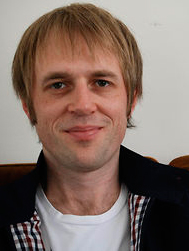Mark Sayers is a cultural commentator, writer, and speaker. Mark is the author of The Road Trip That Changed The World, and Facing Leviathan. Mark is also the Senior Leader of Red Church, and the co-founder of Uber Ministries.
Today, we talk about the failures of both mechanical and organic leadership, and the need for resilience in the modern Church.

1) Facing Leviathan is a unique leadership book. Did you set out to do something different in this genre?
There is a new kind of leader emerging. They value creativity and don't relate culturally to the classic (more corporately pitched) leadership books. You find these leaders in contexts and cities that are highly secular, creative, diverse, and culturally vibrant. Many are leading churches but also many are running non-profits and start-ups. I wanted to write a leadership book that equipped these kind of leaders and creators, but which at the same time challenged their assumptions and strongly advocated for a biblical model of leadership.
2) You talk about the two false dichotomies of leadership: mechanical leader and organic leader. Is there a better, third way of leadership?
From the Church Growth movement in the 1980's many churches and leaders began to take cues from the corporate world, incorporating a mode of leadership that I describe as the mechanical. Mechanical leadership is born out of the idea that the machine is the best metaphor to describe the way the world works. Thus mechanical leadership is driven by such values as efficiency, goals, order, and positional hierarchy.
However beginning in the nineties within the church a reaction emerged against the mechanical model of leadership. Many leaders began to look for an alternative in what I call the organic model of leadership. The organic model sprung up in reaction to the metaphor of the machine, and prefers the relational, the natural, the intuitive, and the authentic.
I came into ministry in Melbourne in the early nineties and landed at the beginning of the rise of the organic model of leadership. I planted churches based around this model. With a friend I started one of the first websites in the nineties exploring this new ministry philosophy and spoke all over the place advocating the organic model of leadership. It has been the dominant mode of leadership that I have tried to lead out of. However as my book describes I began to have growing doubts about the organic mode of leadership. So much of it was based around a deconstruction of the mechanical model, it knew what it did not want to be but not what it wanted to be. I saw that there were helpful elements of both the mechanical and organic modes of leadership, but I also came to learn that both models carry cultural agendas, so I am advocating that we escape from this restrictive dichotomy and a return to a biblical mode of leadership, rooted in the model of the Servant-King, Jesus.
3) You lead in a particular context: Melbourne, Australia. How does ministry in Melbourne shape your leadership style?
I think the question of how you do leadership and ministry in Melbourne is of huge importance for anyone doing ministry in the West. Melbourne is rated the world's most liveable city. It is a growing city of over four million people, that is multicultural, vibrant, and creative. Melbourne has wholeheartedly bought into the hipster/cultural creative aesthetic. Melbourne is a city that defines against; against Sydney, against overseas stereotypes of Australians, against mainstream Australia. Like many cities that position itself as arty and progressive, it is secularising. Church going rates are significantly lower than in the U.S., with only 6% of 18-35 year olds attending church. Thus this context raises many questions. How do you lead in a place where ministries and churches are dying around you, where there are less and less leaders coming through? How do you lead in a city that defines itself against the mainstream, seeing itself as progressive and cutting edge, how do you advocate for biblical orthodoxy in such a context? How do you lead in a place so comfortable and appealing in which people see no need for Jesus in their lives? These questions drive my ministry philosophy, practice, and my writing.
4) Your books is steeped in historical analysis. Why is it so important for contemporary leaders to learn from history?
Today in the West we suffer from historical amnesia, yet we are completely products of our past. To understand where we are going we must learn from where we have been. We believe that we think for ourselves but we are ultimately disciples of past thinkers thoughts. The contemporary young adults sitting in your church is not just a product of the internet culture and social media they are unknowingly shaped by a combination of movements such as German romanticism, existentialism, or utilitarianism. Thus to be effective leaders, we need to understand both how we have been shaped by history and how the people we are ministering to and leading have been shaped.
5) If there is a key word for contemporary pastors and leaders, what would that be?
Resilience. I believe that the key word since the 80's that the church has played around with has been relevance. We have been shaped by asking how do we make ourselves relevant to an increasingly post-Christian culture. In my secular context of Melbourne relevance no longer means much. The young adults in my church don't care about being relevant nor about moving from the evangelical bubble into secular culture. I don't think there is any bubble left here. Instead they want to be equipped to be resilient as they work and live in a secular culture. They want to know how their faith can survive. So I believe that we will increasingly shift from a concept of relevance to resilience.
Daniel Darling is vice-president of communications for the Ethics and Religious Liberty Commission. He is the author of several books, including his latest, Activist Faith.










